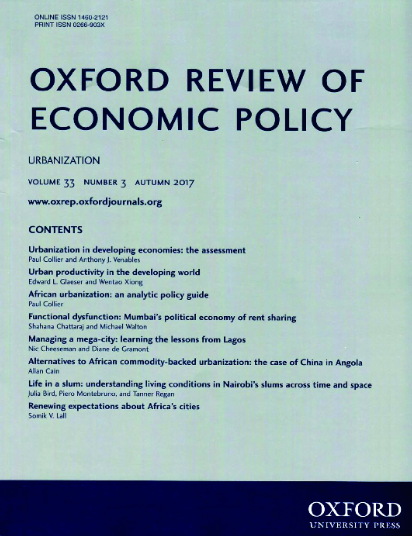《贸易与合作协定》对英国国际贸易的影响
IF 1.8
2区 经济学
Q2 ECONOMICS
引用次数: 0
摘要
我们分析了《贸易与合作协定》(TCA)可能产生的贸易影响,该协定定义了英国与欧盟(EU)脱欧后的贸易环境。我们采用可计算的一般均衡模型,并将重点放在增加值贸易上,而不仅仅是进出口总值。我们描述了TCA,并估计了其对进行英欧贸易成本的影响,包括商品和服务方面的各种非关税壁垒。我们认为,TCA将显著减少英国的贸易:总出口约7%,进口约14%。就附加值(即产生的收入)而言,与欧盟进行广泛贸易的纺织品和汽车受到严重影响,与欧盟进行大量贸易的服务也是如此,面临着贸易壁垒的大幅增加,并且随着这些部门的出口下降,其他部门的需求也会下降。这种行业间的联系将英国脱欧的损失广泛扩散到整个经济中。本文章由计算机程序翻译,如有差异,请以英文原文为准。
The consequences of the Trade and Cooperation Agreement for the UK’s international trade
: We analyse the likely trade effects of the Trade and Cooperation Agreement (TCA), which defines the post-Brexit trading environment between the United Kingdom (UK) and the European Union (EU). We apply a computable general equilibrium model and focus on trade in value added rather than just the gross values of exports and imports. We describe the TCA and estimate its effects on the costs of conducting UK–EU trade, including various non-tariff barriers in both goods and services. We suggest that the TCA will reduce UK trade significantly: total exports by around 7 per cent and imports by around 14 per cent. In terms of value added (i.e. incomes generated), textiles and vehicles, both of which trade extensively with the EU, suffer heavily, as do services which trade significantly with the EU, face large increases in trade barriers, and experience declining demand from other sectors as those sectors’ exports fall. Such inter-industry linkages spread the losses from Brexit widely through the economy.
求助全文
通过发布文献求助,成功后即可免费获取论文全文。
去求助
来源期刊

Oxford Review of Economic Policy
ECONOMICS-
CiteScore
12.50
自引率
1.50%
发文量
41
期刊介绍:
The Oxford Review of Economic Policy is a refereed journal which is published quarterly. Each issue concentrates on a current theme in economic policy, with a balance between macro- and microeconomics, and comprises an assessment and a number of articles. It gives a valuable appraisal of economic policies worldwide. While the analysis is challenging and at the forefront of current thinking, articles are presented in non-technical language to make them readily accessible to all readers. The Oxford Review is aimed at a wide audience including government, business and policy-makers, as well as academics and students. It is required reading for those who need to know where research is leading.
 求助内容:
求助内容: 应助结果提醒方式:
应助结果提醒方式:


